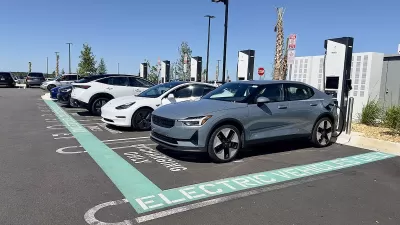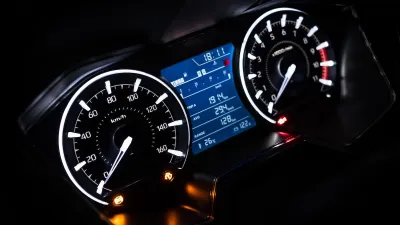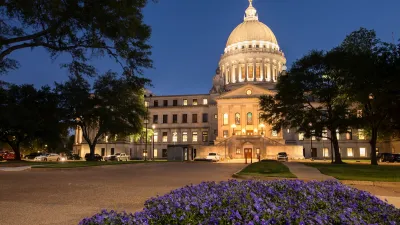In Massachusetts, transportation funding is one of the key issues to be addressed by the state legislature this year. James Aloisi, former Transportation Secretary, offers an inventive way to fund Transit Improvement Districts.
The primary source of transportation funding in Massachusetts is a 19-cent gas tax that has been unchanged since 1993. Governor Patrick Deval Patrick attempted to increase that tax in 2009, but the legislature opted to use increased sales tax revenue to fund transit and roads when those attempts failed.
The current funding is insufficient to address the state's transportation needs, and to make up the gap, Aloisi has proposed what he calls a "carbon impact parking assessment." The assessment is envisioned as a tax on nonresidential parking lots and garages with more than 20 spaces that are located within the district of the Massachusetts Bay Transportation Authority. Revenue from the parking tax would be directed towards improving the public transportation system and bike and pedestrian pathways.
"Parking taxes are not unusual in major cities," says Ryan Holeywell, "but at times, they have been politically unpopular." Such plans have resulted in political strife, such as when the University of Scranton sued its namesake city over a new parking tax and when Chicago residents objected to the $2-per-day "congestion fee" implemented by Mayor Rahm Emanuel.
"Aloisi says the plan would mitigate the environmental impact of automobiles while providing funding for other modes of transportation and ensuring that funding remains locally controlled."
FULL STORY: Should Parking Be Taxed to Fund Bike Paths?

Planetizen Federal Action Tracker
A weekly monitor of how Trump’s orders and actions are impacting planners and planning in America.

San Francisco's School District Spent $105M To Build Affordable Housing for Teachers — And That's Just the Beginning
SFUSD joins a growing list of school districts using their land holdings to address housing affordability challenges faced by their own employees.

The Tiny, Adorable $7,000 Car Turning Japan Onto EVs
The single seat Mibot charges from a regular plug as quickly as an iPad, and is about half the price of an average EV.

Seattle's Plan for Adopting Driverless Cars
Equity, safety, accessibility and affordability are front of mind as the city prepares for robotaxis and other autonomous vehicles.

As Trump Phases Out FEMA, Is It Time to Flee the Floodplains?
With less federal funding available for disaster relief efforts, the need to relocate at-risk communities is more urgent than ever.

With Protected Lanes, 460% More People Commute by Bike
For those needing more ammo, more data proving what we already knew is here.
Urban Design for Planners 1: Software Tools
This six-course series explores essential urban design concepts using open source software and equips planners with the tools they need to participate fully in the urban design process.
Planning for Universal Design
Learn the tools for implementing Universal Design in planning regulations.
Smith Gee Studio
City of Charlotte
City of Camden Redevelopment Agency
City of Astoria
Transportation Research & Education Center (TREC) at Portland State University
US High Speed Rail Association
City of Camden Redevelopment Agency
Municipality of Princeton (NJ)





























